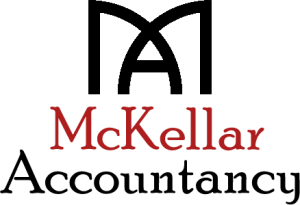In this month’s Enews, we look at the upcoming Autumn Statement and the latest data on the UK economy. We also update you on the self assessment deadline and prompt payments for SMEs. With news on hybrid working and recruitment challenges, there is a lot to update you on.
Chancellor must use Autumn Statement to cement commitment to small firms
The Chancellor should cement the government’s commitment to small businesses in his Autumn Statement, according to the Federation of Small Businesses (FSB).
The FSB has called for a strong stand against late payments; an extension to the 75% business rates discount for retail, hospitality and leisure businesses beyond March 2024; and training in new skills to be tax-deductible for the self-employed.
It has also urged action to increase housebuilding through the introduction of a new Brownfield Development Relief and new measures to help reduce health-related labour market inactivity.
Martin McTague, National Chair of the FSB, said:
‘This Autumn Statement cannot be business as usual. We need focused action. With inflation barely budging, the Chancellor has a golden opportunity to spur the economic vitality the UK needs.
‘We need clear plans to help small businesses grow. Small firms were key to helping the economy bounce back in 2008, and to replicate that, we need to face this issue head on.
‘The government must act swiftly to end late payments, extend business rate relief and eliminate the perverse disincentive against acquiring new skills.’
The 2023 Autumn Statement will be presented to Parliament on 22 November.
Internet link: FSB website GOV.UK
Inflation rate holds steady as UK economy grows
The UK’s rate of inflation held steady in September while the nation’s economy grew the month before, according to the latest figures from the Office of National Statistics (ONS).
The ONS revealed that the CPI rose by 6.7% in the 12 months to September, the same rate as was recorded in August. The CPIH, which includes owner occupiers’ housing costs, rose by 6.3% during this time.
Core CPI, which excludes energy, food, alcohol and tobacco, rose by 6.1% in the 12 months to September 2023, down from 6.2% in August. According to the ONS, the CPI services annual rate rose from 6.8% to 6.9%, while the CPI goods rate fell slightly from 6.3% to 6.2%.
David Bharier, Head of Research at the British Chambers of Commerce (BCC), said:
‘Our research finds that most SMEs report no increases in sales, exports, or investment. The rise in interest rates has also emerged as a prime concern for almost half of businesses, with increased borrowing costs another barrier to contend with.
“Businesses need clarity on interest rates, as well as a longer-term plan for growth in the economy, focusing on infrastructure, skills, and alleviating trade barriers.’
Meanwhile, the UK economy grew by 0.2% in August, according to the ONS. It said the main contributor to the growth was the services sector.
The 0.2% growth figure followed a fall of 0.6% in July.
Bharier added:
‘With GDP growing by 0.3% in the three months to August and by 0.2% on a monthly basis, the UK economy is holding up but remains in a precarious state.
‘Our research is clear about the issues UK firms are facing – three years of economic shocks, high inflation and interest rates, skills shortages and trade barriers with the EU. Consequently, most SMEs report no increase in their investment plans.’
Internet link: ONS website ONS website BCC website BCC website
UK set for biggest tax rise in at least 50 years
The UK is on course to see its biggest tax rise in at least 50 years as a result of the freeze on personal thresholds and soaring inflation, according to analysis from the Resolution Foundation.
The think-tank said taxpayers are set to pay over £40 billion a year by 2028, up from a forecast of £30 billion at the time of the March Budget.
A four-year freeze in personal tax thresholds – the Personal Tax Allowance and Higher Rate Thresholds for Income Tax – was first announced in Budget 2021. At the time, it was forecast to raise £8 billion a year once fully rolled out in 2025/26.
In Autumn Statement 2022, this was supplemented by a two-year extension of the policy through to 2027/28, and the addition of an employer National Insurance threshold freeze, which raised £6 billion.
The more recent inflation shock has significantly increased the size of this tax rise.
Adam Corlett, Principal Economist at the Resolution Foundation, said:
‘Abandoning the usual uprating of tax thresholds is a tried and tested way for governments of all stripes to raise revenue in a stealthy way.
‘But it is the far bigger than anticipated scale of the government’s £40 billion stealth tax rise that stands out.
‘The reality of the largest, and ongoing, tax rise on incomes in at least 50 years is why any talk of pre-election tax cuts will inevitably be seen in the wider context of some far bigger tax rises.’
Internet links: Resolution Foundation
Scams warning issued to 12 million self assessment taxpayers
Self assessment taxpayers must be on the lookout for scam texts, emails and phone calls from fraudsters, HMRC was warned.
HMRC has received more than 130,000 reports about tax scams in the past year, with 58,000 of those offering fake tax rebates.
With around 12 million people expected to submit a self assessment tax return for the 2022/23 tax year before the 31 January 2024 deadline, fraudsters will prey on taxpayers by impersonating HMRC.
The scams take different approaches. Some offer a rebate; others tell taxpayers that they need to update their tax details or threaten immediate arrest for tax evasion.
Myrtle Lloyd, HMRC’s Director General for Customer Services, said:
‘HMRC is reminding taxpayers to be wary of approaches by fraudsters in the run up to the self assessment deadline. Criminals are great pretenders who try and dupe people by sending emails, phone calls and texts which mimic government messages to make them appear authentic.
‘Unexpected contacts like these should set alarm bells ringing, so take your time and check HMRC scams advice on GOV.UK.’
Internet link: HMRC press release
Online platforms should sign up to Prompt Payment Code
Online platforms should commit to paying small businesses within a maximum of thirty days in line with the Prompt Payment Code, according to the Federation of Small Businesses (FSB).
The FSB has set out a range of proposals to protect small business owners who use online sales platforms to ensure that small firms can make the most of the opportunities of trading online.
The business group wants platforms to invest much more in systems to resolve issues for small businesses, including the provision of dedicated complaint and dispute handling resources where these do not already exist.
It also says the UK government should consider legislation to make it an offence for an individual to post a fake and malicious online review.
Finally, the FSB wants the Competition and Markets Authority (CMA) to investigate the charging structures of retail platforms and the charging levels of accommodation and food delivery platforms to determine whether these are indicative of monopolistic or oligopolistic behaviour.
Tina McKenzie, the FSB’s Policy Chair, said:
‘Small firms are calling out for more to be done on issues like protection of their intellectual property, while platforms should commit to paying businesses as promptly as possible – a figure that would be a rounding error for a large e-commerce site could easily be the difference between survival or closure for a small firm.
‘Making the relationship between small firms and online platforms as transparent and as stable as possible will ultimately benefit all parties.’
Internet link: FSB website
Hybrid and remote working here to stay
A large majority of UK business leaders plan to offer employees remote and hybrid working in the long-term, according to the Institute of Directors (IoD).
A survey conducted by the IoD found that 84% of business leaders polled plan to provide office-based staff members with some degree of remote working. The IoD’s survey was conducted between 13 and 30 September 2023 and received 710 responses.
13% of business leaders stated they plan to offer full remote working in the long-term, whilst 18% said they will allow employees to choose how they work.
Alexandra Hall-Chen, Principal Policy Adviser for Employment at the IoD, said:
‘Our research shows that, for a clear majority of businesses, remote and hybrid working are here to stay.
‘Against a backdrop of acute skills and labour shortages in the UK, flexible working is a valuable tool for businesses seeking to attract and retain talented staff.
‘Good flexible working policies can also support groups more likely to fall out of the workforce, such as parents and disabled people, to thrive in the workplace.
‘Anecdotally, we have found that some businesses are moving away from a model marked by full flexibility to a hybrid approach, due to a desire to bring staff together to facilitate innovation and team cohesion, but very few are removing their remote working offer entirely.’
Internet link: IoD website
Many firms still facing recruitment problems
Many UK firms are still facing hiring issues as a result of challenging economic conditions, according to a report from the British Chambers of Commerce (BCC).
73% of firms surveyed by the BCC reported having recruitment problems, with businesses in the hospitality sector the most likely to report challenges.
The construction and manufacturing industries are also experiencing issues, and 72% of retail businesses said they have had recruitment problems.
Adverse economic conditions are restricting investment in workplace training, the BCC found.
Jane Gratton, Deputy Director of Public Policy at the BCC, said:
‘The scale of the recruitment crisis remains huge, despite a welcome fall in the number of firms reporting hiring problems.
‘We have just under a million job vacancies in the economy, and skills shortages are damaging businesses’ ability to operate profitably – as well as impacting the wellbeing and morale of remaining staff.
‘Businesses and the government need to work together to resolve this problem. Bringing more people back into the workforce, with rapid retraining programmes and comprehensive support, will help. While many employers remain sharply focused on investment in training, most businesses need more help to get the workforce skills they need.’
Internet link: BCC website
Latest guidance for employers
HMRC has published the latest issue of the Employer Bulletin. The October issue has information on various topics, including:
- electric charging of company cars and vans at residential properties
- paying your PAYE Settlement Agreement
- reporting PAYE information when payments are made early at Christmas
- new guidance for employment businesses who use umbrella companies to employ workers
- overlap relief – preparing for the new tax year basis
- ‘pay by bank account’ enhancements.
Please contact us for help with tax matters.
Internet link: Employer Bulletin







